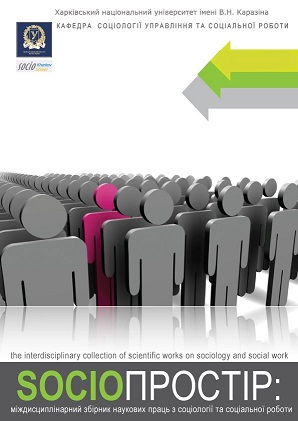Kharkiv Living Lab: from an open innovation ecosystem to a participatory system of food sustainability during wartime
Abstract
Since its establishment, the main idea of the Kharkiv Living Lab has centered around the co-creation and dissemination of knowledge and innovative values related to children food. In the aftermath of Russia's full-scale invasion of Ukraine in February 2022, the Kharkiv Children's Living Lab has been transformed to adapt to the exigencies of wartime, and the primary focus shifted towards ensuring food sustainability during the war. The Kharkiv Living Lab reformulated its key principles, prioritizing transnationality, reactivity, and volunteerism. The activities undertaken by the Kharkiv Living Lab during the war time constitute a distinctive and unprecedented experience of implementing a Living Lab during war time, illustrating how «locality» and «globality» are cooperating to tackle food-related challenges during the war, and how a new quality of social ties emerges among diverse local actors, thereby contributing to the strengthening of social cohesion in the face of profound adversity.
The activities of the Kharkiv Living Lab are a unique, if not the first, experience of the implementation of the Living Lab during the war, which demonstrated how «locality» and «globality» cooperate in the context of food support tasks, and how a new quality of social ties is created between different by local actors, which strengthens social cohesion in difficult times of trial. In this context, the Kharkiv Living Lab is an example of building a small integration system based on the principles of social interaction and cohesion. After all, the main task of the Kharkiv Living Lab is the joint and mutual creation, distribution and exchange of knowledge, innovative values, established social practices regarding children's nutrition. The involvement of students of Kharkiv secondary education institutions, their parents, teaching staff and the administration made it possible to create an innovative and permanent platform for the exchange of knowledge with their further integration into a common «knowledge bank», which is formed and supported by a consortium of partners of the international research project FUSILLI, which is focused on building food stability.
Downloads
References
1. Muradyan, O., Filippova, O., Deineko, O. (2021). Living Lab as participatory innovation practices // Program of the 4th Congress of the Sociological Association of Ukraine «Transformation of social institutions in the information society», Kharkiv, October 28-29, 2021. Kharkiv, 2021. Retrieved from https://sau.in.ua/app/uploads/2021/10/programa-iv-kongresu-sau.pdf [in Ukrainian].

